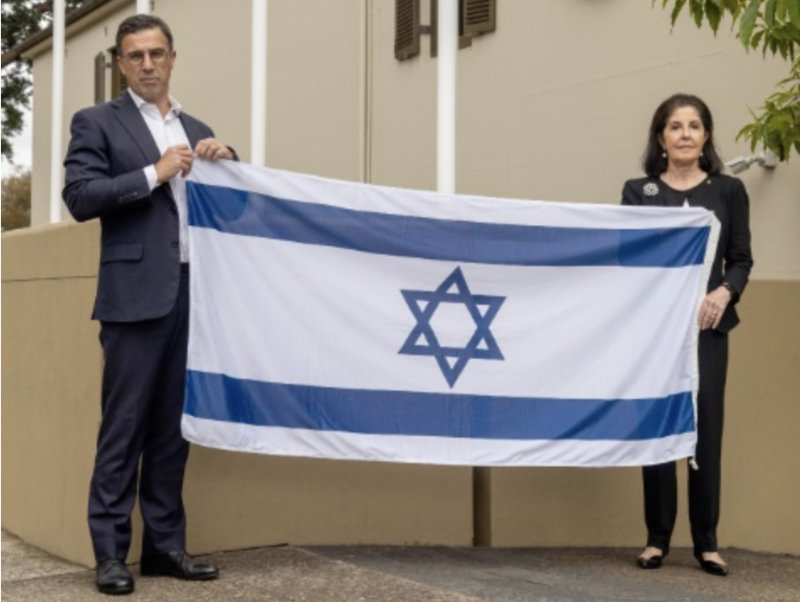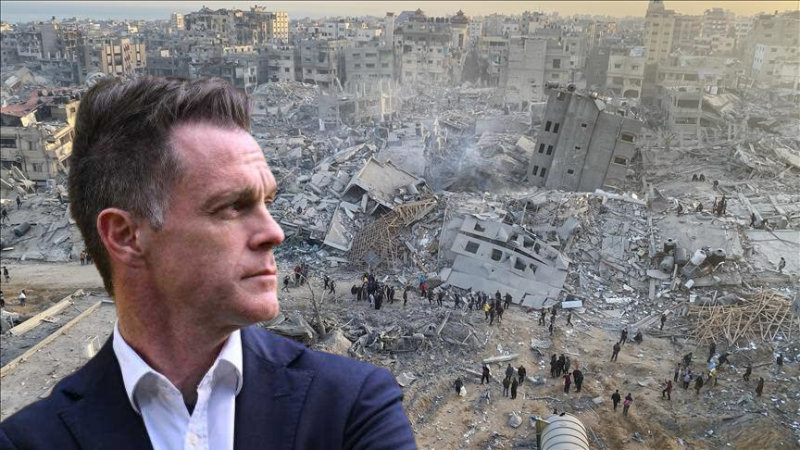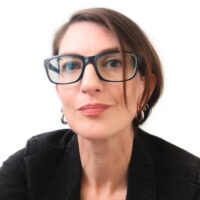Twenty-one months into its genocide of the Palestinian people, Israel has extended its attacks to Iran, with the USA collaborating. Back in Oz, governments look away. Emma Thomas with the latest from the NSW antisemitism inquiry.
One of those pretending there’s nothing to see is the Minns government refusing to cooperate with a parliamentary inquiry into its introduction earlier this year of draconian anti-protest laws designed to suppress advocacy for Palestine.
Meanwhile, the NSW Antisemitism Inquiry continued with another hearing last week, but there is still no clear agreement on what actually constitutes antisemitism.
Those championing the contentious International Holocaust Remembrance Alliance (IHRA) working definition of antisemitism frequently cite the need for a clear, consistent definition. As Waverley Mayor Will Nemesh told the parliamentary hearing this week: “If we’re going to talk about antisemitism, you need to be able to define it.”
The IHRA stance
Waverley Council, which includes Bondi and neighbouring suburbs in Sydney’s east, adopted the IHRA working definition of antisemitism in November 2021—the first council nationally to do so. The adjacent Woollahra Council followed suit in July 2024. Both councils are home to large Jewish populations and witnessed antisemitic incidents last summer. Nemesh and Woollahra Deputy Mayor Sean Carmichael affirmed their commitment to the IHRA definition at last week’s hearing.

Former Woollahra Mayor Richard Shields and Councillor Isabelle Shapiro, 10 October 2023. Source: Woollahra Municipal Council website
The IHRA definition is controversial for listing criticism of Israel among its examples of antisemitism. Describing Israel as “a racist endeavour” is part of one example. Nemesh’s responses to questions from Labor committee member Stephen Lawrence on this point suggest things are not so straightforward, and asked:
“What if a Palestinian resident, who had been expelled from their land in 1967 and denied the right of return to that land in what is now Israel, said: ‘I think Israel is a racist endeavour?’ Would that person be considered an antisemite?”
Nemesh responded:
“I think that there can be— There are strong views in terms of Israel and Palestine. I think, what is crucial is understanding there are two peoples, and both claim connection to the land. I think both are very valid. The Jewish people have had a connection to the land of Israel going back 6,000 years [sic]. That’s undeniable.”
Judaism was founded approximately 4,000 years ago, but Lawrence focused on council policy rather than history. After some back-and-forth, Nemesh answered:
“I think it’s complicated to give an assessment on someone’s, perhaps, character based on a statement. […] The remark itself is obviously important, but a one-off statement, I think, doesn’t go to the core of whether one is an antisemite.”
The entire exchange can be accessed here.
Facts and evidence missing in claims about increasing antisemitism
Reds (and Greens) under the bed?
Another contentious element of the IHRA definition is its conflation of the Jewish people with the State of Israel. Asked whether he considered this conflation detrimental to the current debate, Carmichael said that “unfortunately, the debate around Israel is poisoned by old Soviet propaganda” now advanced by “some on the hard environmental left”:
“They may not be loud about it, but they actually are trying to remake the system themselves. And that’s into eco-socialism or eco-Marxism. And that’s an important version of the eco-colonial global project that’s far more ambitious than just sustainability. Like, for instance, cancelling Australia Day, defacing war memorials and statues—and this is all within the past two years, by the way—breaking apart AUKUS, closing Pine Gap, redefining proud moments of Australian history into sources of shame, and rallying for months about a war that’s so far away.”
Carmichael’s entire speech can be accessed here, but his concluding point was that for those trying to affect “an eventual eco-colonial takeover […], Israel and the Jewish people are collateral damage in their broader quest for roads, rates and revolution.”
Asked again whether he considered the conflation of criticism of Israel with antisemitism to be harmful to public debate about the issue, Carmichael replied: “Absolutely.”
Obsessing over Israel
Both Nemesh and Carmichael indicated that it is the quantity, rather than the quality of someone’s statements or actions that matters most. Any country can be criticised, “but we just don’t want to get into a thing where it’s Israel, Israel, Israel, or Palestine, Palestine, Palestine just forever because that’s when it turns into antisemitism,” Carmichael said. The IHRA definition is useful in determining when criticism of Israel becomes “a bit too obsessive”.
Antisemitism is indicated “if there’s an obsession or a singular focus just on Israel”, Nemesh agreed, “with everything else going on in the world—with Russia and Ukraine, with issues that, you know, China has with Uyghurs and other conflicts”.
Woollahra Council opted to fly the Israeli flag outside its Municipal Council building for a year between October 2023 and October 2024. This was followed by a joint resolution between Woollahra and Waverley Councils in October 2024 to commission a permanent, public art installation serving “as a constant reminder” of the victims of Hamas’s attack on Israel on 7 October 2023. Neither council appears to have made any public statements about China’s ongoing persecution of Uyghurs.
The committee has until 1 September 2025 to determine how to tackle antisemitism in NSW. But first, it needs to figure out what antisemitism actually is, ideally without obsessing over Israel.
Dr Emma Thomas is a researcher and writer based in the Greater Sydney area. As a historian, she has spent the last fifteen years studying and teaching at universities in Australia and the United States. One of the first things she teaches all her students is that opinions and evidence-based arguments are not the same thing.

